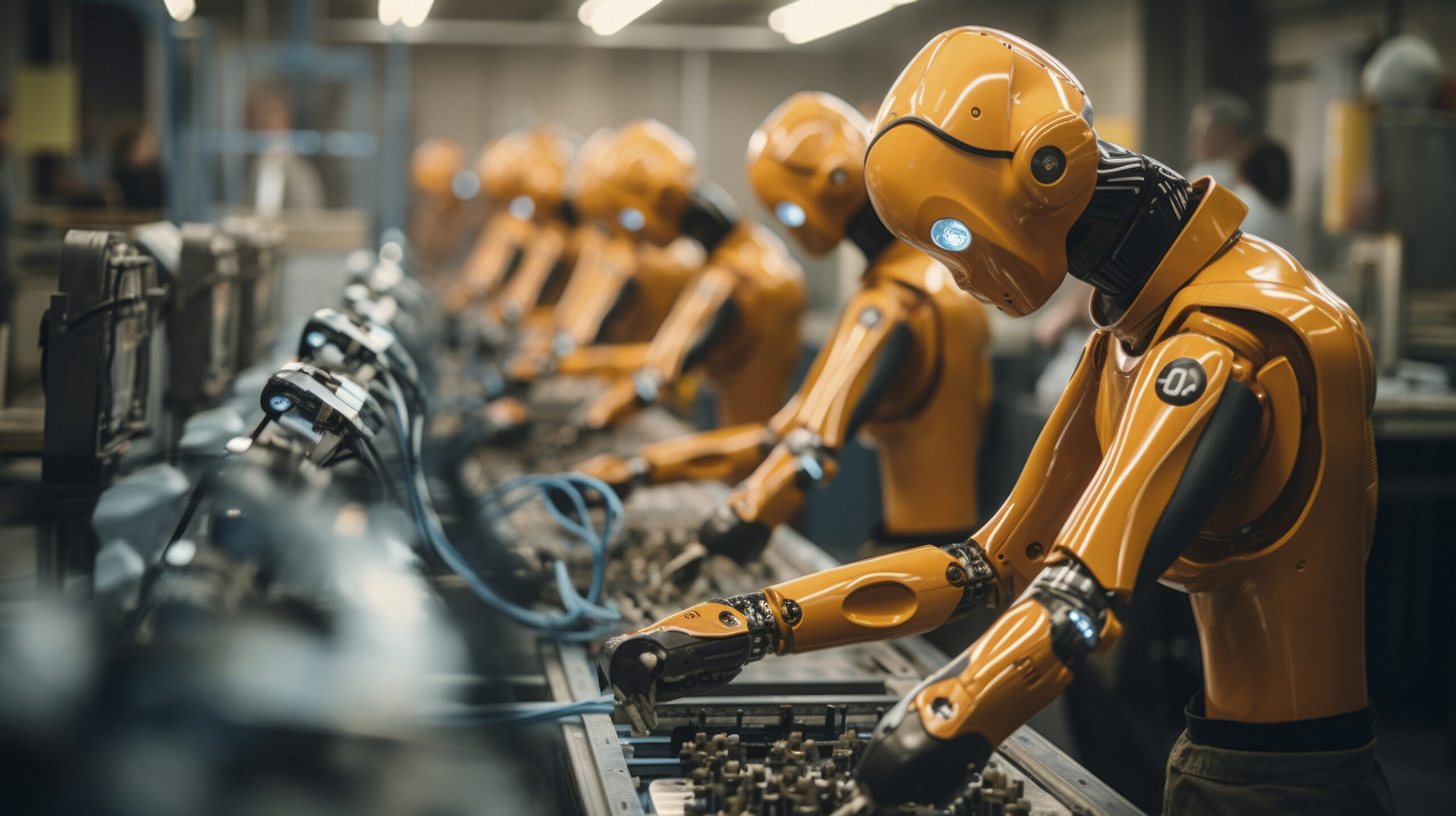Automation
- Home
- Automation

Improved Product Quality and Reduced Errors through Automation in Industry 4.0
Automation plays a crucial role in enhancing product quality and minimizing errors in the context of Industry 4.0. By integrating advanced technologies such as the Internet of Things (IoT), artificial intelligence (AI), and machine learning, manufacturers can implement automated quality control systems that continuously monitor and optimize production processes.
- Real-Time Monitoring and Control
IoT sensors and devices enable real-time monitoring of production lines, allowing for the early detection of quality issues and defects. These sensors collect vast amounts of data, which can be analyzed using AI algorithms to identify patterns, predict potential problems, and trigger immediate corrective actions.
- Automated Quality Inspections
Industry 4.0 automation enables the implementation of in-line, real-time quality inspections. Advanced vision systems and sensors can perform automated inspections at various stages of the manufacturing process, ensuring consistent product quality and reducing the need for manual, error-prone inspections.
- Predictive Maintenance
By integrating IoT sensors and data analytics, manufacturers can monitor equipment health in real-time. Predictive maintenance algorithms identify potential failures before they occur, allowing for proactive maintenance and reducing unplanned downtime. This minimizes the risk of equipment-related quality issues and ensures consistent production.
- Data-Driven Decision Making
The vast amounts of data collected through automation and IoT enable data-driven decision making. Advanced analytics and AI algorithms can provide valuable insights into production processes, helping manufacturers identify areas for improvement, optimize parameters, and make informed decisions to enhance product quality.
- Reduced Human Error
Automation reduces the reliance on manual processes, which are prone to human error. By automating repetitive tasks and implementing smart systems, the risk of errors caused by fatigue, inattention, or lack of training is significantly reduced.
- Traceability and Compliance
Industry 4.0 automation provides enhanced traceability throughout the manufacturing process. By collecting and storing data from various sources, manufacturers can ensure compliance with regulations, track product genealogy, and quickly identify and address any quality-related issues.
In summary, automation in Industry 4.0 improves product quality and reduces errors by enabling real-time monitoring, automated inspections, predictive maintenance, data-driven decision making, and reduced human error. These advancements lead to more consistent, reliable, and high-quality products, ultimately enhancing customer satisfaction and competitiveness in the market.








